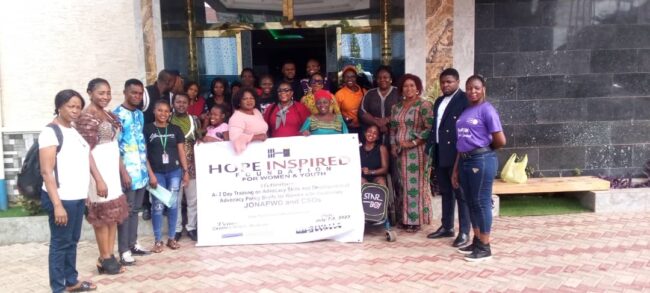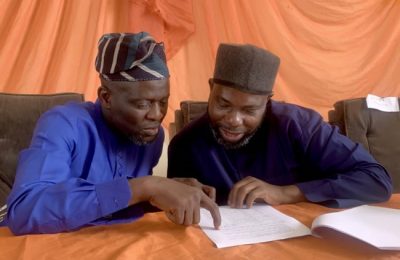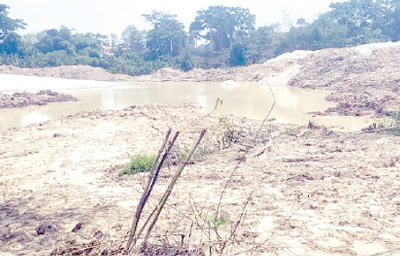Women with disabilities in Ebonyi State have called on the state government to expedite action on domesticating the law in the state.
The group made the commitment during a two-day advocacy training and capacity building for women with disabilities, Joint National Association of Persons with Disabilities and some Civil Society Organizations in the state.
The event, which was held on Friday and Saturday in Abakaliki, the capital of Ebonyi State, was facilitated by the Hope Inspired Foundation for Women and Youth (HIFWYD). It was part of the organization’s project “Advancing Rights of Women in Ebonyi State” (ARWE), with support from the Disability Rights Fund.

The participants pledged to work assiduously with other relevant stakeholders to justify the confidence reposed in them by the organization. They also constituted a 10-man Technical Working Committee to advance and protect the rights of women and girls with disabilities.
Speaking to newsmen, a participant and member of the Technical Working Committee, Stella Egwu, decried the level of exclusion, deprivation, and discrimination suffered by people with disabilities in the state. She expressed optimism that domesticating and passing the Disability law in the state would bring positive changes in the general perception of PWDs, especially women who are much more vulnerable.
Egwu emphasized, “In Ebonyi State, frankly speaking, there is no disability inclusion. People with disabilities are regarded as less privileged; we are not seen as people capable of contributing anything to the growth of the state. I think we still have a long way to go, but we will keep pushing until a difference is made.
We will try our best to advocate and meet with relevant stakeholders for them to make sure that women with disabilities are carried along, and also that this Disability Bill is domesticated in Ebonyi State. If this Disability Bill is passed, it will bring a lot of changes in issues of disability welfare in the state.”

Another member of the Committee, Elizabeth Agbo, described her membership of the Committee as a dream come true, stating that she has longed for such a platform to enable her to speak up with impact on issues affecting their group.
Agbo emphasized, “I feel so excited because this is an opportunity I have been looking for a means of expressing my thoughts. I am a woman with a disability, and I know the pains we are going through. It has been my innermost desire to speak out for the welfare of our group, and I think this organization has given me the platform to actualize that.”
Inaugurating the committee, the Volunteer Board Chairman of the Organization, Ejiro Okotie, lamented that women with disabilities are much more vulnerable to sexual and other abuses. Okotie charged the committee to synergize with relevant civil society organizations, other bodies, and influencers to ensure that the specific needs of the group are incorporated into state policy instruments.
She further charged them to work towards achieving the domestication and signing of the Disability law in the state, leveraging on the opportunity offered by the change of administration.
Okotie stressed, “On a regular basis, the rights of women with disabilities are violated with impunity while authorities, policymakers, and the public show insensitivity. Most often, women with disabilities experience sex by chance, not by choice. There are also gaps in policies and laws specifically addressing the needs of women with disabilities on issues around Gender-Based Violence.”
“The main goal of the Technical Working Committee is to work closely with the Hope Inspired Foundation as well as the Joint Association of Persons with Disabilities (JONAPWD) and other clusters of women with disabilities to ensure that their rights are protected, and their interests actively represented in policy matters in the state.
They are like a bridge between women with disabilities and the mainstream community, working with support from the Hope Inspired Foundation. Part of what we are doing is to see how we can review the disability draft to reflect the specific needs of women with disabilities in Ebonyi State and also engage with stakeholders to ensure that we achieve our goal of having it signed.
It is our desire to have the official launch of the law in the state on this year’s International Day of Disabilities, December 3.”
The HIFWYD State Program lead, Oluchi Nwite, explained that the essence of the ARWE project is to provide visibility for women with disabilities in gender-based violence response and advocate for an enabling policy environment for the enactment of disability laws in Ebonyi State.
The lead resource person at the event, Dr Ibiam Azu-Agwu, covered various topics related to effective advocacy, the advocacy process, and advocacy goals and objectives. Lectures on project implementation, monitoring, and evaluation were also conducted.
It is important to note that the Technical Working Committee is made up of only women, mainly with various forms of disability.
YOU SHOULD NOT MISS THESE HEADLINES FROM NIGERIAN TRIBUNE
Shukroh Adeyemi is a first-class graduate of the Department of English, Lagos State University (LASU), for the…
Full list: Names of ex-governors receiving pensions in 10th Senate
No fewer than 13 former governors still receive pension allowances as serving senators in the…
Mmesoma’s father apologises, begs JAMB, Nigerians, to pardon daughter
Mr Romanus Ejikeme, the father of Mmesoma Ejikeme, the 2023 Unified Tertiary Matriculation Examination (UTME) candidate who…
Asisat Oshoala shortlisted for 2023 Ballon d’Or award
Nigerian football star and Super Falcons forward, Asisat Oshoala, has been named as a nominee for the…
3 lessons from the ethnicization of JAMB controversy
OVER the last few days, Irecoiled in horror and disgust as the fairly straightforward case of JAMB exam result fraud by…
Rahinatu Ibrahim, popularly called Ganga, recalled with nostalgia when she first embarked on her journey to the…







